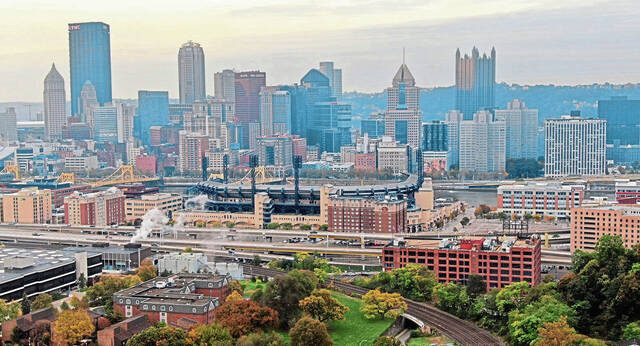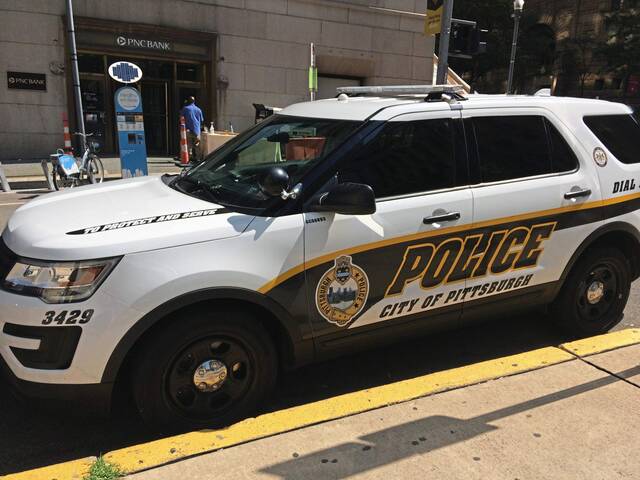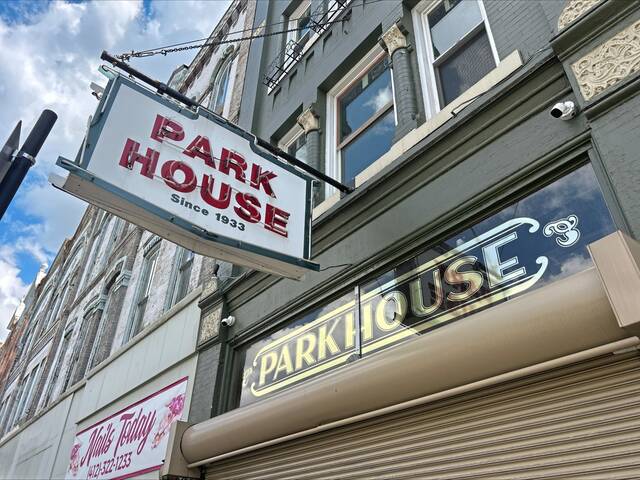Pittsburgh City Council members are debating the merits of continuing to invest in compressed natural gas vehicles.
The city has 10 compressed natural gas refuse trucks and is getting 10 more this month, according to Maria Montaño, a spokeswoman for Mayor Ed Gainey.
“I hate that we continue to add these trucks to our fleet” as city officials are moving to create an all-electric fleet, said Councilwoman Deb Gross, D-Highland Park.
Officials have said that electric vehicle technology isn’t ready for the city to make the jump to electric vehicles for its refuse trucks. Charging takes too long and doesn’t last long enough for the distances the vehicles have to travel, said Councilwoman Barb Warwick, D-Greenfield.
The city bought the compressed natural gas vehicles with state grant money and didn’t have to provide any of its own money, Montaño said.
For weeks, however, council members have debated legislation that would extend the city’s contract with Compass Natural Gas for fueling equipment for the vehicles. The city now leases refueling equipment at a site in the Strip District where the vehicles are kept, Montaño said.
According to the proposed legislation, the city has paid $126,000 a year for the refueling equipment since 2020. The proposed legislation would extend the contract through 2025.
Some council members have argued that it’s not an investment worth making.
Gross said modern diesel vehicles are “way more fuel efficient, less expensive” and easier to fuel at just about any gas station. Newer diesel vehicles are less polluting than the old diesel trucks the city uses now, she said.
Other council members said they would have preferred to move straight to electric vehicles, but several appeared to agree that the technology isn’t ready for the city to make that jump yet.
Montaño said the compressed natural gas is cheaper than diesel and its price is “a lot less volatile.” On average, the city spent $2.89 a gallon for compressed natural gas last year, compared to $3.79 per gallon on average for diesel.
She said the compressed natural gas trucks also have less of an environmental impact than diesel ones, but the ultimate goal is to transition the city’s entire vehicle fleet to electric when possible.
Council President Theresa Kail-Smith, D-West End, said the city shouldn’t be leasing fueling equipment for the Strip District fueling site when there’s a commercial compressed natural gas fueling station in the city’s Fairywood neighborhood, which she represents.
“The disinvestment in my side of town is more than evident,” she said.
Warwick, however, said Fairywood is almost 8 miles from the Strip District site where the trucks are kept. Given the distance between sites, she said, it seemed like the “economical choice and the practical choice” to lease equipment so the city can refuel its fleet on-site.
The proposed lease deal was approved in a preliminary vote Wednesday, despite opposition from Gross and Kail-Smith. Council is expected to take a final vote on the proposal next week.








